Letting Go
The principal glared at me. "He's a special education student. He should ride the special ed bus." I glared back. "He wants to ride his bike. We practiced on the weekend. He's fine. He doesn't want to ride the special ed bus. We're only a little more than five minutes away."

"Well you'll need to sign a waiver that we are not responsible for his safety to and from school. And I still don't think you're making the right decision."
"I'll sign the waiver. And the decision is mine to make."
And so, at eight years old, Andrew began to ride his bike to school. It was the first of many "letting go's." "It's not always easy, and it's not often kind," as the Lovin' Spoonful's used to sing. But letting go is essential to the growth of our children with challenges. Most of the time, our children will provide the cues when they are ready to move on. Sometimes we need to push a little bit.
And always, we have to remember that we won't live forever, and although siblings may say they will help when we are gone, we still want to prepare our children to live as independently as possible. And some children don't have siblings. Then what?
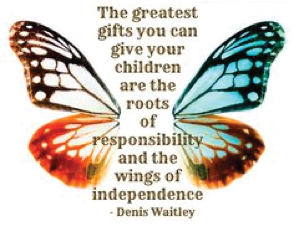 At 15, Andrew announced he was ready to ride RIPTA by himself, having gone a few times with his Home-Based-Services-Therapy provider. I fretted. He wanted to go to Providence from South Kingstown. PROVIDENCE!!!! How would he negotiate the city alone? This time I needed the push. His step-father told me to let him try. Andrew didn't have a cell phone yet, so we decided my mother-in-law, who lives in Providence, would meet his bus. It was fine, of course. But soon he wanted to venture farther and farther, alone. And he didn't want anyone meeting him. He still didn't have a cell phone because, foolishly, I didn't think he would learn how to use it. Silly, silly me!
At 15, Andrew announced he was ready to ride RIPTA by himself, having gone a few times with his Home-Based-Services-Therapy provider. I fretted. He wanted to go to Providence from South Kingstown. PROVIDENCE!!!! How would he negotiate the city alone? This time I needed the push. His step-father told me to let him try. Andrew didn't have a cell phone yet, so we decided my mother-in-law, who lives in Providence, would meet his bus. It was fine, of course. But soon he wanted to venture farther and farther, alone. And he didn't want anyone meeting him. He still didn't have a cell phone because, foolishly, I didn't think he would learn how to use it. Silly, silly me! 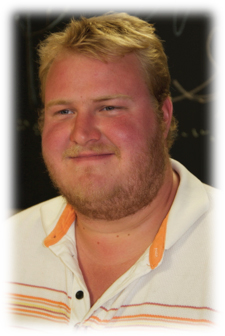 Finally, one December night we had a blizzard, the one where all the Providence school kids were stuck on the bus. Andrew, too, was in Providence, and I had no way to reach him. It grew later and later, and no Andrew. By now even my husband was worried. My mother-in-law was ready to call a taxi (a luxury she couldn't really afford) and go looking for him at Kennedy Plaza. I was sick to my stomach. Just after 11p.m., the back door opened and in walked Andrew. "The bus was late. I was afraid I wouldn't get home, but I did," he said proudly, covered from head to toe in snowflakes from the still falling snow. I thought of him walking down dark South Rd. so late at night, and shuddered.
Finally, one December night we had a blizzard, the one where all the Providence school kids were stuck on the bus. Andrew, too, was in Providence, and I had no way to reach him. It grew later and later, and no Andrew. By now even my husband was worried. My mother-in-law was ready to call a taxi (a luxury she couldn't really afford) and go looking for him at Kennedy Plaza. I was sick to my stomach. Just after 11p.m., the back door opened and in walked Andrew. "The bus was late. I was afraid I wouldn't get home, but I did," he said proudly, covered from head to toe in snowflakes from the still falling snow. I thought of him walking down dark South Rd. so late at night, and shuddered.
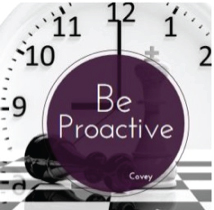 I knew I wouldn't survive another trip like that. We went out together the next day and got his first cell phone. He was enchanted with it. He called everybody, and soon we had to increase our minutes! Once again, I had let go and he was fine! We also invested in a light that he could wear on a cord around his neck—steady or blinking, whichever he chose. He always walked facing traffic on South Rd, so now I felt he was about as safe as he could be.
I knew I wouldn't survive another trip like that. We went out together the next day and got his first cell phone. He was enchanted with it. He called everybody, and soon we had to increase our minutes! Once again, I had let go and he was fine! We also invested in a light that he could wear on a cord around his neck—steady or blinking, whichever he chose. He always walked facing traffic on South Rd, so now I felt he was about as safe as he could be.
Trips to Providence increased, new friends were made. I began to see that Andrew's world expanded in proportion to the letting go I was willing to do. There were dances, get-togethers with friends, friends he made on his own at the nearby University. In a few years, he began to talk of having his own place. In between there were girlfriends. He had his first heartbreak. We grew together. I learned to butt out; he learned to venture beyond the safety of home and the security of his family’s love.
Others cautioned me: "You let him do too much! What if he gets in a situation he can't handle? He should at least have staff with him!" And so on. I continued to see growth, though, and knew that such growth would not be possible if someone were always hovering at Andrew's elbow. At what point does worrying and caretaking become a wall instead of a window? At what point does risk outweigh personal growth? The line is different for all of us. But I feel my son has the same right to make mistakes as his sister, as we all do while growing up.
 In September of 2013, we got the call: at last there was a decent apartment available for Andrew. Was the neighborhood my absolute first choice? No. But was it safe enough? Yes. There were growing pains. There was the night I locked myself in the bathroom and cried my heart out, sobbing, feeling empty, and missing my son terribly. There were nights Andrew called me, struggling manfully to hold back tears.
In September of 2013, we got the call: at last there was a decent apartment available for Andrew. Was the neighborhood my absolute first choice? No. But was it safe enough? Yes. There were growing pains. There was the night I locked myself in the bathroom and cried my heart out, sobbing, feeling empty, and missing my son terribly. There were nights Andrew called me, struggling manfully to hold back tears.
But gradually, with the help of staff, he managed to get into the routines we all acquire when setting up a home and going it alone: shopping lists, shopping itself, bank accounts, cooking, and caring for his pet Himilayan, white with buff markings, much-loved Louie, a purring puff-ball of a cat. Routine calms. I began to relax. Andrew had always been good with the buses, and now, more than ever, he took advantage of them to explore the city of Providence, and its environments venturing on the "T" to Foxboro to visit his half-brother and his family, and finally, to the Aquarium and Museum of Science in Boston. He settled into a routine of staying over our home about once a week, helping us with chores, having a meal cooked by Mom, and feeling as though he were helping us. Which he was! We were only too happy to pay him to do the weed-whacking, help us open and close the pool, and lug seasonal items up and down the basement stairs.
His sister commented to me one day how much he had matured since living alone. She found an essay her husband had written about the person he most admired: his brother-in-law, Andrew. He envied Andrew his frank expression of his fears, his fears, his love, in fact, all of his feelings. And he admired the way that Andrew matter-of-factly transitioned to his own life, his own apartment, his own computer, his own pet to care for.
Having staff help plan events for him? OK. The freedom to live as he wishes? Priceless.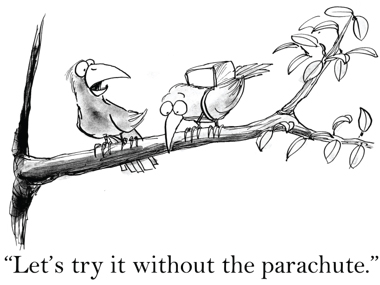
Written by Celest Martin, Co-Chair RIDDC and Chair, Systems Advocacy Committee (SAC)
Supports Intensity Scale (SIS) Blog
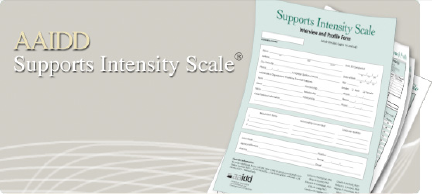
Hi Everyone:
It's been a while since I've been able to connect with you, but I wanted to talk with you about the Supports Intensity Scale (SIS), known as the SIS. It is the evaluation tool currently employed by BHDDH to measure the amount of support adults with disabilities require.
My purpose here in this blog is to inform families what to expect when the SIS is administered in your home, and what to do if you feel the results do not match what you think your family member with a disability actually needs.
What is the SIS?
The SIS is an evaluation instrument for those with disabilities who are 21 and over. The letters stand for Supports Intensity Scale…
Click here to read the rest of the post about the SIS.
Family Connections Forum
Do you…
Have a family member newly diagnosed with a disability?
Feel as though you don't know what to do first?
Wonder what services are available and who pays for them?
Have questions about transition for your young adult between 18-21?
Need guidance for your young adult who has aged out of the school system?
Have questions about how to help your family member grow and be as independent as possible?
Want to know more about resources/supports for families?
Feel confused about how to find the most effective services/supports for your family member?
Have other questions?
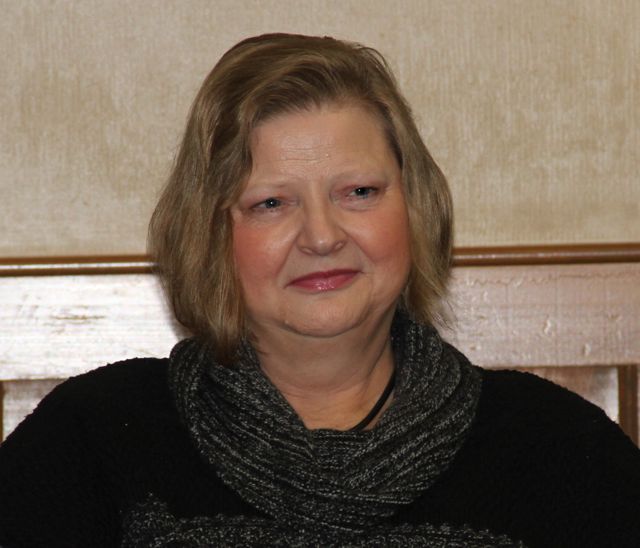
Well then check out the DDC's Family Blog called…“Ask Celest!”
Our Family Forum is a new feature available monthly on the Rhode Island Developmental Disability Council's website. Celest Martin is the parent of a 25-year old son on the Autism Spectrum, teaches Disability Studies at The University of Rhode Island, is the Chairperson of the Systems Advocacy Committee (SAC) of the RIDDC and is a Member-at-Large on the Executive Committee of the Council. She will answer your questions relating to children or adults with developmental disabilities or direct you to a person who can.
Please send your questions to Celest at riddc@riddc.org
or click here to learn more about the blog and this month's issue


